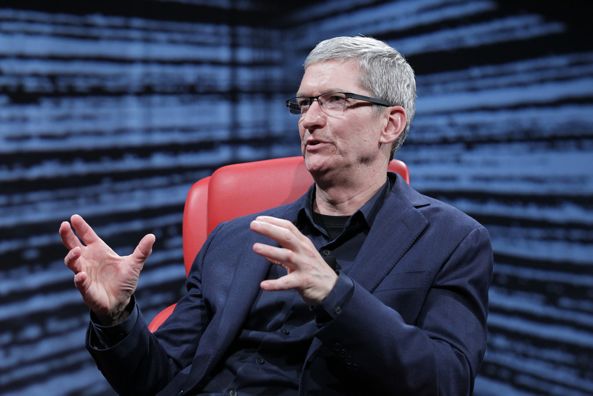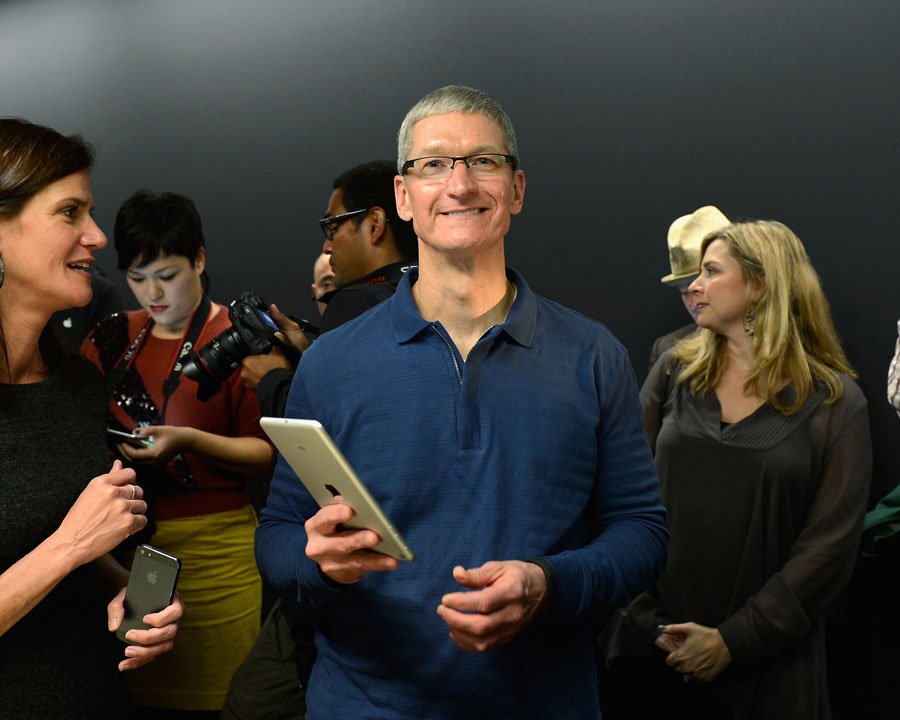
To bolster its stock in the eyes of investors, Apple recently announced it would buy back $60 billion worth of shares. Such a move makes sense – after all, the iPhone maker does have this cash hoard of nearly $150 billion. However, it turns out Apple won’t touch that money, opting instead to borrow the funds.
By borrowing the money, Apple keeps its billions out of the reach of U.S. taxes, saving the corporate giant money while also retiring expensive stock dividends.
You didn’t think there was any altruism involved, did you? The move, however, isn’t without its pitfalls. Moreover, Apple isn’t alone in a corporate game of chess where it’s all about manipulating the tax code, according to a report Friday…
The Washington Post’s Allan Sloan explains Apple would have to pay U.S. taxes if it used cash in overseas bank accounts to pay for the buyback.
At $410 per share, the buy back would shrink Apple’s dividend load by $12.20 per share.
Since dividend payments are not tax-deductible, the company instead will pay interest (which is deductible) of $12.30 per share to borrow the money.
But, wait, there’s more.
Along with saving money on the buyback, Apple boosts it’s earnings per share, a factor always noticed by Wall Street. If U.S. taxes were only less for corporations, they’d drop the tax shelters and come on home, right?
Maybe not, Sloan writes.
With tax rates at 35 percent, it’s considerably cheaper for Apple to borrow money in the United States than it would be for it to repatriate cash held in foreign subsidiaries. But even if the tax rate were only 25 percent, it would be cheaper for it to borrow than to repatriate.
But Apple borrowing a massive amount of money comes with the risk of awashing the company with debt, and that’s exactly what nearly killed Apple in the 1990s.
Analyst Rob Enderle has his doubts, explaining how Cook’s plan could backfire:
Cook’s stated plan is to eliminate Apple’s cash reserves, increase debt and build a lot more variety into Apple product lines. It reads like he’s planning to return Apple to how it was when Jobs took over – hopefully short of the “nearly bankrupt” part.
He suspects the move could be part of Cook’s exit strategy and a way for the CEO to give himself a “lucrative golden parachute.”
Here’s the quote:
In the near term, though, the buyback will reduce the number of shares in the market.
In addition, offering a huge dividend will entice more people to buy Apple stock. By the law of supply and demand, which a logistics guy like Cook knows backwards and forwards, the end result, regardless of Apple’s performance, should be a massive stock price increase.
And Tim Cook holds a lot of stock.
At any rate, the use of foreign subsidiaries to lower the taxes of U.S. based corporations is mind-boggling.
Start internationally. You create a subsidiary in a low-tax country, such as Luxembourg.
That subsidiary owns intellectual property it licenses to other subsidiaries located in high-tax countries. The royalty fees are tax-deductible, allowing a multinational corporation to move cash from a high-tax pocket to a low-tax pocket.
It’s a similar story in the United States. Although Apple’s headquarters are in California with a tax rate of 8.84 percent, it has an office in tax-free Nevada.
“Setting up an office in Reno is just one of many legal methods Apple uses to reduce its worldwide tax bill by billions of dollars each year,” the NewYork Times reported in 2012.
As it has in Nevada, Apple has created subsidiaries in low-tax places like Ireland, the Netherlands, Luxembourg and the British Virgin Islands — some little more than a letterbox or an anonymous office – that help cut the taxes it pays around the world.
Although Apple is lauded for its creative use of design and technology to develop devices consumers fall over themselves to buy, perhaps the most important employees are tax attorneys, according to the Post.
So, what’s your position on the subject?
And did Cook make a grave mistake by borrowing the money instead of spending some of Apple’s cash pile to pay for the stock buyback?

